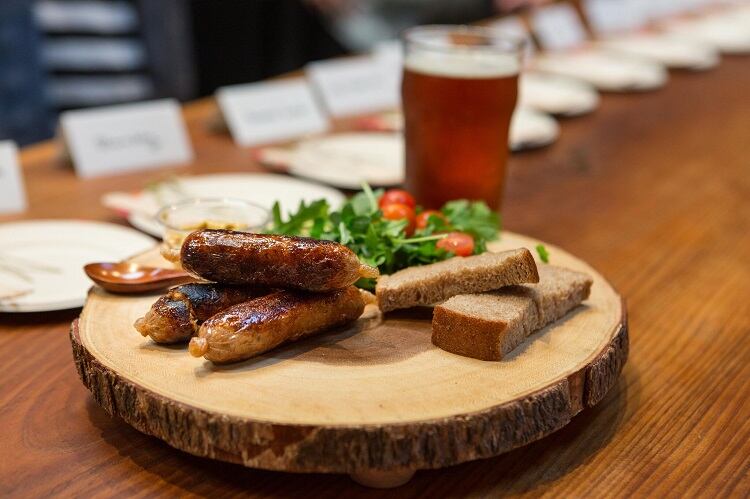The funding, which comes from EU co-funded investors EIT Food, will go towards bringing the production costs of cultivated meat down in an attempt to make it available for the masses.
Specifically, the research will target bringing down the cost of cell culture media, one of the key barriers to making cultivated meat commercially available. Cell culture media is the brew, abundant in nutrients, that feeds cells as they grow in a cultivator. It remains the most expensive element of growing cultivated meat.
Rather than using pharmaceutical-grade cell culture media, the companies will use the far cheaper and less energy-intensive ‘food grade’ media, hoping to produce products that will enable cultivated meat companies to produce a higher yield at a lower cost.
The funding was awarded after research teams put forward their ideas at the Cultivated Meat Innovation Challenge in 2022, which was backed by non-profit the Good Food Institute (GFI) Europe.
How the companies will use the funds
The funding will go to two companies: Israel’s BioBetter and the UK’s 3D Bio-Tissues Ltd.
BioBetter, on the other hand, uses technology that can ‘teach’ tobacco plants to produce growth factor cells which it needs to reproduce (in a process similar to that which is used with medicines and vaccines). Protein can, in fact, be extracted from the plant (the company describes it as an ‘ecofriendly bioreactor’), which can then be harvested up to four times each year.
3D Bio-Tissues Ltd is a spin-off from Newcastle University and started out producing human corneas for eye transplants. Its technology is synthesised from the bioproducts of industries such as agroforestry.
It plans to upscale production of this formula, which it calls ‘tissue templating’. Using its technology, it also plans to create a cheaper cell culture media that uses ‘food-grade’ media rather than pharmaceutical grade. This will then be sold to cultivated meat companies as ready-to-use and recyclable products.
“This is such an exciting time for cultivated meat innovation,” said Dr Adam M. Adamek, director of innovation at EIT Food, “and we’re delighted to be awarding new funding to three of the most cutting-edge startups in the industry.
“The cost of cell-culture media is a significant barrier to scaling cultivated meat, and we hope that reducing this will bring us one step closer to seeing these innovations on the market – and to achieving a more healthy, sustainable food system.”
“It’s very exciting to see these innovative ideas turned into plans that could be brought to the market within the next two years,” added Seren Kell, senior science and technology manager at the Good Food Institute Europe, “helping cultivated meat companies across the world to drive prices down and turn this more sustainable way of making meat into a commercial reality.
“This work could have a major impact on how quickly we can scale up production and create a more sustainable food system.”
Updated 9/10/2023 to reflect changes to the GFI press release
Want to learn more about cultivated meat? Register here for our free-to-attend Climate Smart Food digital event 19-21 September.



